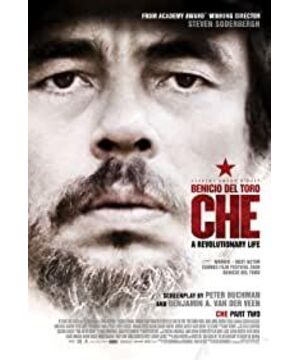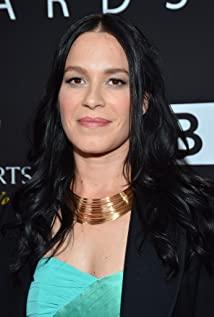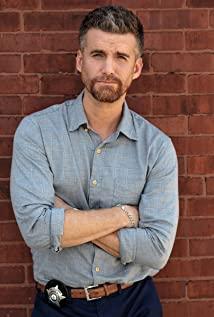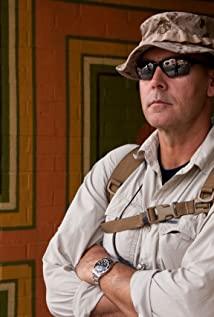In addition, they also have similar narrative techniques and rhythms. As a character biographical film, the most important task is to construct characters and get them to be recognized by the audience. Therefore, none of them have a tight plot design, but more of a capture of events. The choice of the event is not very dramatic either. The two "Che Guevara" uses a very documentary technique to show various details about him; including his humility and enthusiasm for farmers, and his attitude towards his subordinates. Sternness and love also have his bravery and fearlessness in fighting, and his insignificance and fragility when he has an asthma attack. There is no discussion of any doctrines here, only the actions of Che Guevara.
But compared to the image of the perfect revolutionary hero portrayed in the first "Che Guevara: Argentina", what attracts me more is the martyrdom in the second "Che Guevara: Guerrilla".者 image. It was not his victory in the revolutionary war that really made him an enduring symbol of idealism well known to Westerners; there were too many examples of this, and after the disturbing 60s, others gradually became Westerners. They have forgotten, and even become enemies of the world because of the various crimes they committed against their own people. What makes Che Guevara live forever is his passion to let go of all his power and continue to devote himself to the revolution; it is his perseverance and sacrifice like a martyr.
The beginning of "Che Guevara: Guerrilla" is a historical image of Che announcing that he will leave his high position and continue to join the revolution in Cuba. Compared with the first one, this one uses a lot of hand-held photography, full of jump cuts, edits that do not maintain continuity of action, more cool tones and stronger contrasts make the film quickly appear ominous. Feeling; even the color of the jungle is not the bright green that belongs to the tropical jungle in the first part, but is full of more desolate turquoise green. Under the tone of this image, Che fought in vain in the jungle, but did not lay down his weapons-the only way to realize his ideals was still preaching his message; in the last human being they visited In the village, after they distributed the food in the seller’s shop to the children, Soderberg adopted the method of sound and picture counterpoint, telling the villagers why they had to fight, and admonishing them to abandon all the indifference and pain, and go. Let's end the injustice here together. The camera jumped sharply, and the place where they spoke was the church in the village; here, it was hinting that Che was their savior, and like Jesus, he was also facing the misunderstanding and distrust of the people.
The director did not try to portray Che Guevara as a god, he also has his own weakness and defects, but the persistence of a mortal is undoubtedly even more precious. In the high-altitude jungles of Bolivia, it is almost impossible to breathe from an asthma attack. As his body gets weaker, we usher in the most surreal image in the film. Che rides on a white horse, panting, and quickly traverses the dappled jungle, as if to directly challenge the windmill; but the stalling of the horse pulls everything back to the realistic jungle, and Che’s anger and helplessness at this moment are the same. His image of holiness just now formed a sharp contrast, just like the contrast between his heart and his helpless situation.
Unlike previous martyrs, Che did not have any abstract ideals, nor did he force others to follow his beliefs. "Medical treatment" is a recurring motif in the film. The film repeatedly shows him treating the wounded, treating farmers' sons, his words of admonishing farmers, etc.; Che Guevara, who was once a doctor, hopes to create positive It is a world where everyone is full and sick; but when he leaves his asthma medicine in the camp, a doctor who cannot heal himself is a symbol of his inner despair, and also heralds their failure in the jungle.
The conversation before the execution is the best summary of him in the film. The guard asked him what he believed in, and he replied: I believe in mankind. He is the martyr of such a new age, a son of mankind.
View more about Che: Part Two reviews










